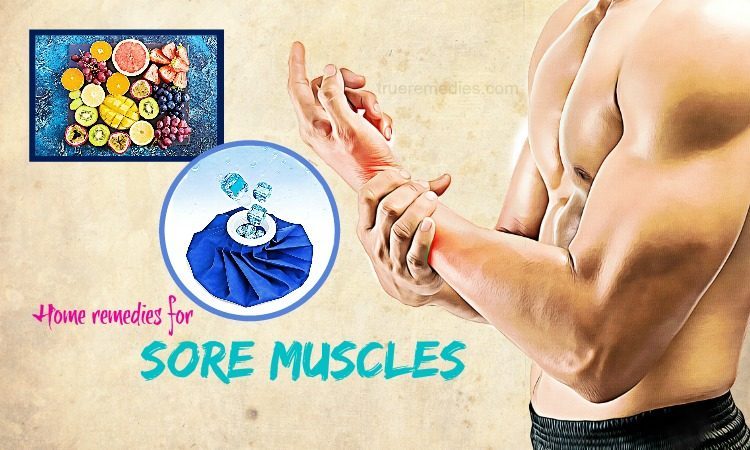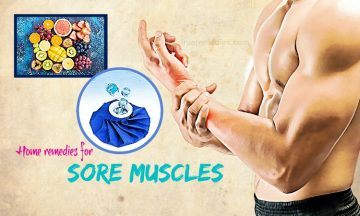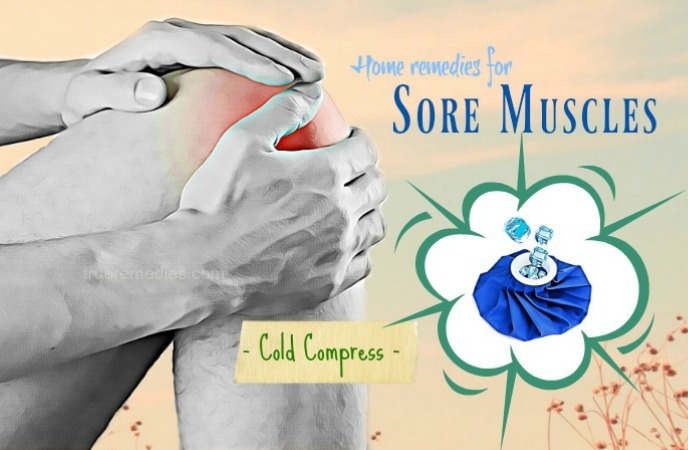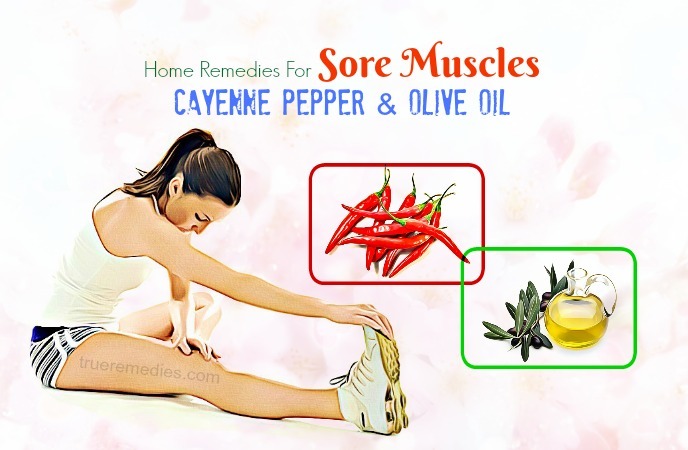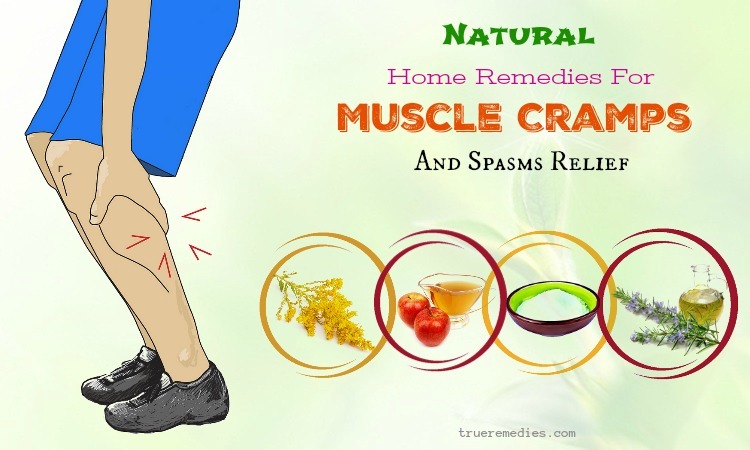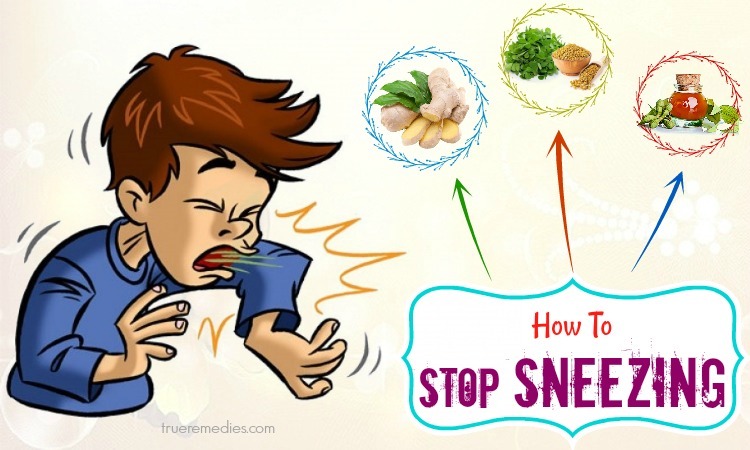Updated: 07/27/2019
CONTENTS
Sore muscles are a common symptom of musculoskeletal pathology. Sore muscles reduce the performance of people. This is a cause of fatigue, depression, and anxiety in people in life. Since many people are not aware of the effects of the disease, they ignore it. They think that after a while, this condition will disappear. However, it is not the truth. More importantly, this disease may occur in people of all ages, and if not treated promptly, the disease will cause many unfortunate consequences for patients.
Sore muscles affect the movement, causing many people to feel very uncomfortable without acknowledging the exact causes. In this article, we are going to reveal to you the basic knowledge that you should know about sore muscles and some natural methods to alleviate the condition. Maybe you will wonder why we are not introducing drugs that help relieve pain. However, as you know, natural remedies are always the priority of many people, because they are safe and effective, and they do not cause any side effects.
What Is Sore Muscles?
Muscle is a soft tissue[1] composed of protein and fiber that may stretch in both directions. The primary muscle function is to maintain or change the position of the movement of the body as well as the progress of the internal organs. Most muscles are attached to the bone. The stretching of the muscles makes the body move.
Sore muscles are symptoms of musculoskeletal pathology[2] that almost everyone has ever experienced. You may have sore muscles in a small area or the whole body. You may experience mild to severe pain. Sore muscles may happen in a short time and then disappear, or it may last for a few months. This makes patients tired and anorexia. Therefore, it affects the health and daily living of the patients. It may occur at any age, and if not treated in time, it will cause stress and anxiety for the patient.
There are two common types of sore muscles[3]: localized muscle pain and general muscle pain. Localized muscle pain is a condition in which a muscle is stretched or cramped. This condition is often followed by excessive exercise[4]. This type of muscle pain may go away on its own after a few days and may be prevented by proper training and exercise scientifically. General muscle pain is a rare condition compared to localized muscle pain. The cause of this condition is the side effects of the drug, poisoning, or the impact of a neuropathy.
TrueRemedies Partner Solutions

Need a Help from the Leading Expert Online, Available 24/7?
They’re all here and ready to answer your questions online or by phone. Keep asking questions until you get the answer you need.
What Are Common Causes Of Sore Muscles?
There are many causes leading to sore muscles. Here are some of the leading ones:
- Deficiency of calcium, vitamin D, and some other vitamins
Lack of calcium will lead to osteoporosis[5]. This often causes pain in the hands and feet; nails and toenails may break easily. Besides, this condition also makes patients feel tired and sluggish, lack of vitality. Vitamin D deficiency affects the body’s ability to absorb calcium[6], making the bones softer. Vitamin C deficiency also leads to muscle aches. Deficiency of vitamin D is the most common culprit causing this discomfort but the lack of vitamin A, C, B1 is also one of the causes.
- Varicose Veins
Varicose veins[7] are the phenomenon of veins that compress the nerves and blood vessels, resulting in decreased blood supply to the muscles and joints. Therefore, patients often feel sore muscles. Long standing and less movement cause the blood at the lower part of the leg to circulate poorly. The blood vessels are stagnant, causing compression, resulting in soreness. People suffering from degenerative spondylosis, herniated disk, diabetes, and musculoskeletal diseases such as rheumatoid arthritis, degeneration, arthritis, and bone cancer will often have varicose veins.
- Sciatica
Sciatica is a common disease today and is one of the causes of sore muscles[8]. Sciatica may be caused by the injury. However, the leading cause of this disease is due to spinal pathology. When physical damage occurs, the nerves are pinched, causing the muscles to become sore.
- Other diseases
Other diseases such as atherosclerosis, ischemia[9], multiple neuropathies, liver disease, kidney disease, fibromyalgia, muscular pain syndrome may also cause sore muscles.
- Bone and joint injury
Bone and joint injury, hematoma due to the wound also affect muscles, causing pain.
- Cramps
Sore muscles due to cramps are also quite common. Many people suffer from this condition because they exercise too much or carelessly[10]. Also, pregnant women who are deficient in calcium face muscle cramps. Cramps are also a side effect of working too frequently or drug usages.
- Stress
When the body is stressed, stress hormones cause the muscles to stretch, causing sore muscles[11].
What Are Common Symptoms Of Sore Muscles?
Patients often feel pain and fatigue in the muscles in the arms, legs, thighs, etc. Accompanied with the expression of pain is feeling stress, headache, distraction, and poor thinking, which affect the working productivity and quality of life. Also, strong movement after a long resting time will make patients feel pain, especially when climbing or running down the stairs. The pain level increases when you work hard and decrease when you relax.
Who Is At High Risk Of This Problem?
Almost everyone has ever had sore muscles. Those who regularly exercise or less active are the most susceptible. However, you can control the disease by reducing the risk factors. Consult your physician for more information.
When To See A Doctor?
You need to see a doctor if you have any of the following symptoms:
- Sore muscles often occur, and this problem usually lasts for several weeks, causing mental and physical discomfort.
- Sore muscles accompany rash symptoms.
- You notice signs of infection, such as swelling and redness in the muscles pain area.
- Suffer from muscle pain after taking self-care and after taking medication.
- Sore muscles occur after you start taking or increasing your dose of the specific drugs (especially statins and other drugs for cholesterol control).
For the above cases, patients should go to the medical centers and hospitals specializing in bone and joints to ask for examination and doctor’s advice. In unusual cases accompanying shortness of breath, dizziness, weakness of the body, high fever or stiff neck, the patient should be taken immediately to the medical center for emergency treatment. This is a severe condition.
You have discovered some fundamental information about sore muscles. They are the condition that needs to be treated as soon as possible. It is time to find out what the effective home remedies for sore muscles and pain are. Take a look at TrueRemedies.com!
10 Effective Home Remedies For Sore Muscles And Pain
1. Cold Compress
Hot or cold compress are conventional methods used by many people who suffer from trauma or mild pain. This remedy is straightforward and easy to apply in any situation. However, not everyone knows when to get a hot or cold compress. Dr. Paul D’Alfonso from Maple Healthcare Chiropractic Center, explained that warm compress is a treatment for the injury that occurs over 48 hours, which dilates blood vessels, brings blood to the affected area to stimulate the healing of damaged tissue. For muscle, bone, and joint injuries, hot compress is not as effective as a cold compress. Cold temperatures have lasting effects on the circulatory system rather than warm temperatures. The analgesic properties of cold temperatures are also deeper than hot ones.
The choice of hot or cold compress is usually based on the patient’s feelings. Many people who suffer from bone and muscle injuries tend to get warm compress, although the cold compress gives better results. This habit is due to the influence of traditional Chinese medicine and the common analgesic effect, which makes the patient feel better. However, if wrongly applied, this will cause undesirable effects. For example, in the case of chronic pain in the joints and muscles, there is usually swelling around the area. If you apply a hot compress, it is added to the heat in the injured area like adding fuel to the fire. You will heat the muscle tissue, leading to an increased risk of degeneration over a long period.
In the above case, cold compresses are more effective. Cold compresses have an anti-inflammatory effect, reducing the temperature in the muscles and making the pain disappear[12]. When the pain is severe, the muscles produce more fluid, causing pressure and strain on the body. In this case, the cold will reduce the swelling and slow down the transmission of information through the nerves, thereby reducing the pain. When patients are in the recovery stage, they can apply a cold compress before doing physical exercise.
The way to make a cold compress is effortless. All you need to do is prepare some ice cubes and a soft towel. Use this towel to wrap ice cubes, then apply it directly to the affected muscle. Each time lasts 15-20 minutes, you can re-apply this remedy every 2 hours.
2. Drinking Enough Water
Drinking plenty of water is good for the body and also a way to relieve muscle pain after playing sports. Dehydration will make it easier for sore muscle[13]. For productive sports activities, you need to drink water regularly. Hydration is the key to prevent the accumulation of lactic acid[14]. As you know, accumulated lactic acid may cause a burning sensation in the muscles and cause sore muscles. This acid is soluble in water, so the more water your body receives, the less risk of sore muscles you have. Water also helps the body to eliminate toxins. Therefore, while playing sports or doing hard work, it’s best to drink water every 15 minutes, one glass at a time.
Cherry juice helps reduce muscle pain after intense exercise[15]. Antioxidants found in cherries are called anthocyanins. This is a substance that may reduce inflammation. Dr. Declan AJ Connolly at the University of Vermont and his colleagues claimed that drinking cherry juice before and after exercise may reduce the risk of muscle injury. They gave 14 male college students 46 grams of fresh cherry juice twice a day for eight days. By the fourth day, these students had to do some exercises with their elbows. He realized that students who drank cherry juice had less muscle pain and had more flexibility after exercising than others. Connolly advises that both men and women should add cherry juice to their menu. Cherries are rich in antioxidants and anti-inflammatory substances[16], all of which are beneficial to the body.
In another study, Spanish researchers gave volunteers natural watermelon juice and other drinks one hour before exercise. The results showed that after training, those who drank watermelon juice reduced muscle aches[17]. This may be explained by the fact that L-citrulline amino acids found in watermelons help athletes quickly recover their muscles and increase their performance. Watermelon juice is an antioxidant and may increase muscle protein, helping to improve athletic performance. According to researchers, the natural chemicals found in watermelon also accelerate the removal of lactic acid; this reduces the risk of sore muscles.
3. Foods
Attention to the daily meal is also necessary. Complex carbohydrates and high protein foods should be included in the diet after exercise. In a report, experts said that protein helps to recover muscle quickly after a workout[18]. Fatty acids should also be added to your meals. Here are a few suggestions for high protein foods you should eat to relieve muscle pain:
- Chicken
If you are looking for a great source of lean meat that is high in protein and low in fat, then choose chicken. The protein in the chicken may help you grow and develop muscles while reducing muscle pain, maintain a healthy body weight, and support weight loss[19]. The leanest part of the chicken is the breast meat. Breast chicken looks a bit dry but may be processed to taste better. 90 grams of chicken breast meat contains 133 calories, 0.86 grams of saturated fat, and 27 grams of protein. This is a valuable source of protein.
- Fish
Fish is also one of the most delicious foods to treat sore muscles. Omega-3 fatty acids in fish make good blood circulation[20] and lower the risk of sclerosis, which slows down the production of triglycerides in the liver. The American Heart Association recommends that people should eat fish at least twice a week. Salmon trout is good for health as they are usually kept in good condition. 90 grams of salmon trout contains 143 calories, 1.4 grams of saturated fat, 1.5 grams of unsaturated fat (including omega-3 fatty acids), and 20 grams of protein. Wild salmon is considered the best seafood. 90 grams of cooked salmon contains 151 calories, 1.7 grams of saturated fat, 1.7 grams of unsaturated fat (including omega-3 fatty acids) and 20 grams of protein .
- Egg
Eggs contain a variety of amino acids[21], supplied by the protein. Egg whites are the best part of an egg. A boiled egg contains 6 grams of protein, and eating an egg is a very convenient way for you to add more protein to your body.
4. Fruits
This is another must-try home treatment in this list of home remedies for sore muscles. The addition of some fruits are also a great way to prevent or treat aching muscles. Here are a few suggestions for fruits that people with sore muscles should eat:
- Banana
Banana is one of the carbohydrate-rich fruits[22]. Eating bananas in your breakfast will provide your body with glycogen and help prevent muscle weakness. Banana is also a great fruit thanks to its potassium reserves – an electrolyte needed for muscle contraction.
- Pomegranate
Researchers from the University of Texas (USA) have shown that pomegranate works to restore and improve muscles[23]. Pomegranate has anti-inflammatory and antioxidant properties, so it is considered a natural medicine to help relieve muscle pain. Besides, it works to increase blood flow, produce electricity, and increase exercise efficiency for those who practice regularly.
- Blueberry
Blueberries are a good source of nutrients. Research has shown that blueberries contain phytochemicals (the generic name of healthy plant nutrients), such as anthocyanidins, flavonoids, and phenolic acid[24], which may help to reduce muscle soreness. Besides, blueberries contain many antioxidants that help prevent chronic diseases.
- Almond
Almonds contain a lot of protein, fiber, and vitamin E[25]. Also, potent antioxidants found in almonds[26] are beneficial to your muscles, helping to restore your body after exercise. Almonds may even help you burn excess fat in your body.
5. Exercises
This is one of the little – known remedies. New research shows that exercise may help eliminate sore muscles, but that is not the only way to cope with this problem. After a day of intense training, keep moving is probably something you do not want to think about, but it is what you should do. A new study in the Journal of Strength and Physical Activity has shown that mild exercise has analgesic effects similar to the effect of massage[27]. Researchers believe that exercising promotes blood circulation to the muscles, it also speeds up the removal of metabolic waste and chemicals which cause muscle pain. That’s the view of Dr. Lars Andersen, lead author of the study and professor at the National Center for Research in the Working Environment in Copenhagen.
Andersen also reminded that exercises to recover muscles must be quick and easy, just like startup exercises. For blood flow to specific muscle groups, you need to perform the same movements as those that caused muscle pain, but with a lower intensity. In case you have aching muscles all over the body, do some simple exercises on the elliptical machine or in the pool. Of course, exercising muscles is not the only way to relieve pain. You can perform muscle stretching movements after performing startup ones. Stretching movements have the effect of relaxing; this reduces the chance of muscle pain.
6. Apple Cider Vinegar
Apple cider vinegar is among simple but effective home remedies for sore muscles and pain relief. It contains more power than you think. It is rich in acetic, citric, and malic acids as well as vitamins, enzymes, minerals, and amino acids[28]. The anti-inflammatory and alkaline properties of vinegar help relieve joint and muscle stiffness and pain.
Using apple cider vinegar to treat sore muscles is very easy. You can mix one or two tablespoons of apple cider vinegar with a glass of water and then drink. Besides, you can also use apple cider vinegar to massage the affected area. This will contribute to relieving muscle soreness.
7. Practice Intensity
This remedy is vital for people who often play sports or go to the gym. You should only practice 30 minutes/day, 6 days/week for the first 3 months. You also should spend a day relaxing muscles to prevent them from fatigue due to continuous strong movement. In the next 3-6 months, you can increase your training time to 1 hour/day. From 6 to 12 months, the training time may be 1.5 hours/day. Those who have practiced for 1-2 years should exercise at least 1h30-2h/day and 3-4 days/week, do not exercise too much if you are not a bodybuilder or you do not intend to participate in the competition.
Sports beginners should not rest during the first 3 – 7 days. This is an important stage because frequently exercise this time will awaken your muscles. If you cannot do this, you will be very susceptible to sore muscles during the next exercise[29].
8. Cayenne Pepper And Olive Oil
This sounds strange but cayenne pepper and olive oil work for sore muscle relief. Cayenne pepper contains capsaicin (a heat-generating substance in hot peppers). Capsaicin in Cayenne peppers may act as an analgesic agent. This substance may help our body fight against muscle fatigue and improve exercise performance[30]. In a study published by the British Journal of Medicine, researchers confirmed that applying capsaicin to the skin will help relieve pain[31] very effectively; this method is even more effective than the use of some painkillers.
One of the great benefits of cayenne peppers is that it improves blood flow in the body[32]. Capsaicin in Cayenne peppers makes the body warm, and the blood circulates more. This helps to improve the condition of sore muscles significantly. Olive oil contains many oleocanthal compounds[33]. This compound helps block inflammation, and therefore, relieves muscle pain. Olive oil is also rich in polyphenol antioxidants[34], which help reduce the painful mechanism in the body.
You can do this remedy by mixing 1/4 – 1/2 teaspoons of cayenne pepper with a cup of warm olive oil and apply this mixture to the affected area. Avoid contact this mixture with eyes, nose, and mouth to avoid irritation.
9. Acupressure Method
This is one of the little-known home remedies for sore muscles. Acupressure is a scientific method in which the acupressure in the body is stimulated by the pressure to provide relief. The stimulation of these points is also known as the strengths that trigger the release of Endorphins. This natural painkiller also works to relieve muscle pain[35]. It also helps relax and heal muscle soreness.
10. Herbal Remedies
It is possible to add some herbal oils such as lavender and eucalyptus to the bathing water to reduce muscle tension and pain[36]. These oils may penetrate into the skin and tissues and alleviate the soreness.
The above mentioned home remedies are claimed to effectively reduce the symptoms of this condition. Choose some of them and alternate them in your treatment to see how effective they are. If you have any contributing ideas about our article of “Top 10 effective home remedies for sore muscles and pain,” do not hesitate to drop your words below this post. We will answer as soon as possible.

